Academic Books closes stores as turnover plummets – “There won’t be a campus bookstore if you don’t do anything”
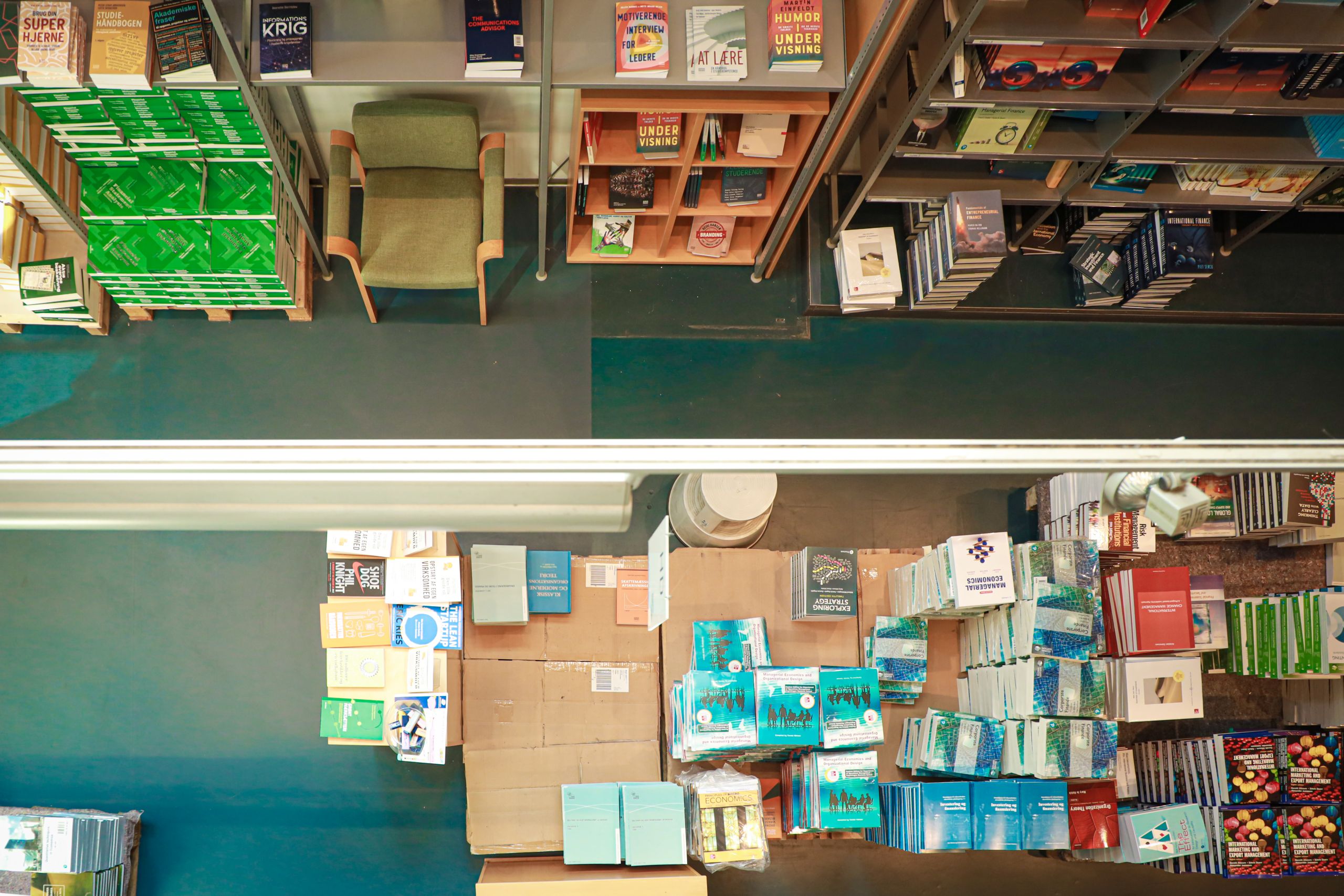
The store at CBS is Academic Books' biggest and handles the most online sales. Photo: Anna Holte.
The non-profit bookstore and CBS creation Academic Books has lost 30% of its revenue in the last five years. “If this goes on, in four or five years there will be no bookstore at CBS,” says Kenneth Golubov, Administrative Director of SL Fonden, under which Academic Books is run.
Academic Books was founded in 1967 by a group of students at CBS, at the time called Handelshøjskolen i København. Their aim was to make academic literature available to students at an affordable price.
Over the years, the bookstore has changed shape and name, but remained non-profit and with students making up most of the board. Today, Academic Books is one of two branches under the non-profit SL Fonden, the other part being the publishing house Samfundslitteratur.
While the bookstores account for the majority of the revenue – about 80% – they do not generate profits anymore:
“The book division comes out with a massive negative result,” Kenneth Golubov says.
As a result, nine bookstores are about to become seven. Academic Books recently closed its branch at Roskilde University, and its smallest store at University of Copenhagen (KU) is set to close at the end of May.
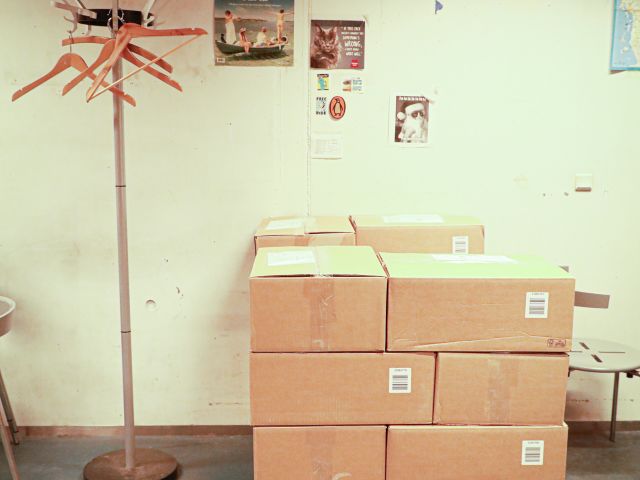
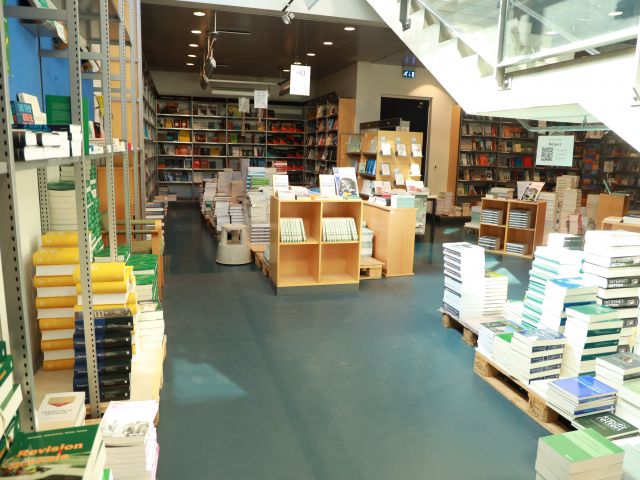
That will leave one store at CBS, four at KU and one at Køpenhavns Professionshøjskole and SDU in Odense respectively, as well as the online bookstore. But two of the KU bookstores will become popup stores this fall, opening only during the semester starts.
The stores closing are the smaller ones, which are more sensitive to decreased turnover. But the trend is evident across all bookstores, including online. It is a sector-wide trend hitting beyond campus bookstores.
“All publishers see a decrease in sales. It’s across the business,” says Kenneth Golubov, who is frank about the bleak prospects for his business.
According to him, it started five to six years ago, but has accelerated the last years.
“The consequences are no bookstores in a couple of years and Danish academic literature will disappear. Small languages don’t have a large market because they don’t sell abroad. All the American textbooks will be there and the big publishers. Their sales are also massively down, but it comes down from billions and not millions.”
We need to do something, because if this goes on there won’t be a bookstore.
Ronni Jørgensen, Store Manager, Academic Books CBS
Academic Books’ profit has been negative over the past 5 years. The turnover for the store at CBS has gone down from DKK 16 million five years ago (2018-19) to DKK 10 million in the last fiscal year (2022-23). The trend in the rest of the company is similar. The publishing house has secured a profit until last year but now also sees a deficit.
Kenneth Golubov gives the physical bookstores four to five years at the current rate – “maybe faster, maybe ten years” but they will not survive like this. A possible future scenario for SL Fonden is as a publishing house which sells books through other retail channels.
E-book piracy
Kenneth Golubov thinks there are two connected reasons behind the downward trend: inflation and illegal copying.
“It’s easier to get copies for free by illegal copying so students are pushed by inflation to take that road,” he says.
Illegal copying however, had been singled out as a threat to the publishing industry long before the economic crisis and inflation hit.
While selling second-hand copies of physical books is perfectly legal, reselling or sharing e-books is illegal. Yet, digital books are frequently sold or shared through online platforms and social media.
Half of all students acquire their digital study books illegally, according to a study conducted by Epinion on behalf of the Danish Rights Alliance (Rettighedsalliancen), an interest group protecting the creative industries’ rights on the internet. The level has remained stable over the last couple of years.
Many illegal e-books stem from Nota, the Danish Library and Expertise Center for people with print disabilities. Nota provides access to audio books, e-books and Braille books for people with visual impairment or dyslexia, but the books are illegally spread beyond the intended users. According to the study, 19 percent of students had digital books originating from Nota, although they did not have Nota access themselves.
While illegal copying can have consequences such as fines or a prison sentence, most cases are not discovered, and even fewer are prosecuted. The Rights Alliance estimates there have been around 10 to 20 convictions over the last three to five years, resulting in fines of up to DKK 35,000 and in some cases conditional prison sentences. But those are just the large-scale organised illegal sales. Small-scale purchasing – also illegal – is rarely prosecuted.
The attitude towards illegal copying among students in Denmark is relaxed. According to Epinion, one out of three students find it acceptable to sell a digital book or share it with a friend.
“Part of me understands them, but part of me thinks: hey, it’s illegal! Don’t do it!” says Kenneth Golubov.
He appreciates the financial constraints on students, but he also points out that the book expenditure is the only part of their education that Danish students have to pay themselves.
“I tell them it’s the equivalent of one month’s salary after graduating. But that doesn’t resonate. They don’t have the money now.”
Kenneth Golubov says he understands the students. He was also a student one day – at CBS.
“I had a course where we had a book that was 100 pages and cost 800 kronor, 20 years ago. You can imagine how many of us bought it.”
Did you buy it?
“I bought it, but I lent it out,” he says.
“And I only bought it because my father paid for my books.
“I’m not sure what I would do if I was a student today, maybe I would steal a copy. I couldn’t say. But, I hope I would do the right thing and buy the book.”
Unsold books
Perhaps his stance is telling of the issue at hand – there is widespread cultural acceptance of illegal copying. Students do not worry about being caught, and discuss illegal sharing openly even inside the bookstores.
Ronni Jørgensen, store manager of Academic Books at CBS, says during the term start they hear it on a daily basis.
“People come down to have a look at a book and another fellow student says: ‘you don’t need to buy that one, we already have it, I have it, I know who has it and I can send it to you on email.’ It’s quite blatant, it’s not in hiding anymore.”
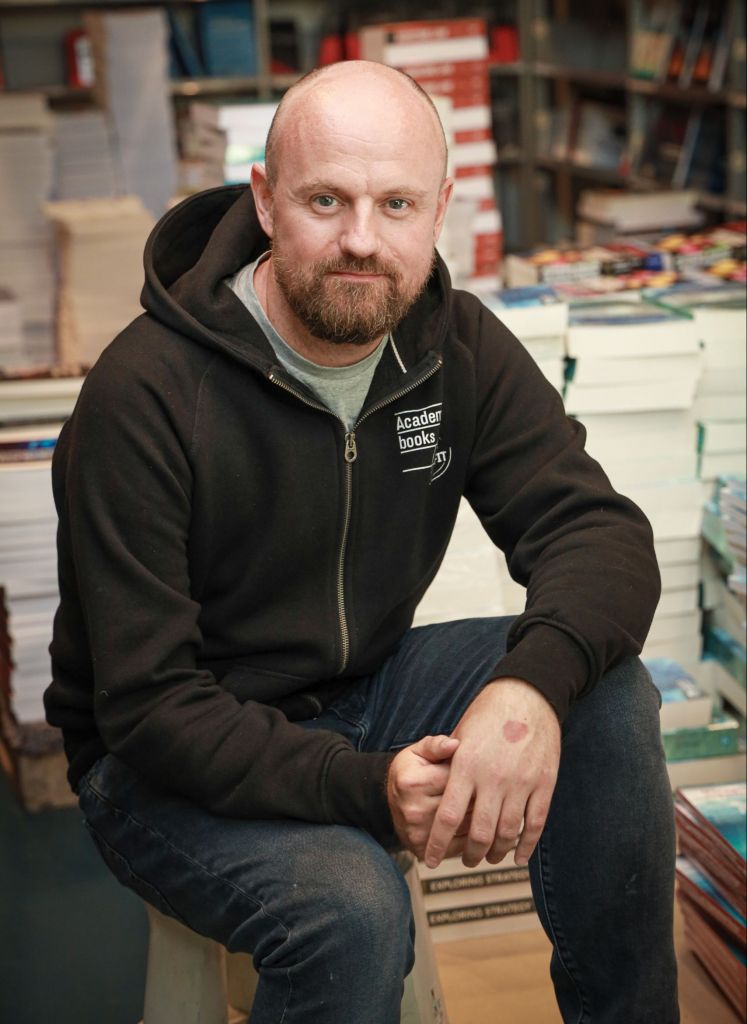
Store Manager Ronni Jørgensen has worked 20 years at Academic Books, most of which, at the store at CBS. Photo: Anna Holte.
He has worked at Academic Books for 20 years, six years at RUC and the rest at CBS, where he started as a student assistant. The decline in sales over the last five or six years has been obvious and unlike anything before.
In the past, Ronni Jørgensen says they did not interfere, but now the staff have started to tell the students that sharing digital copies is illegal – while some people obviously do not care, there might be some who do not know the rules.
“We need to do something, because if this goes on there won’t be a bookstore.”
The use of illegal copies is revealed by the sales statistics and is noticeable on the shop floor.
Introduction to EU Internet Law, a solid turquoise book, is neatly stacked in two waist-high piles. It is assigned reading on the course EU Internet Law taught by Professor Jan Trzaskowski, one of the authors. The class has around 150 students a year, yet this year, the book has only sold two copies at Academic Books. The only other provider, Saxo, has not sold a single copy.
Normally, Academic Books looks at last years’ sales when buying books, but with a constant decline in students’ purchases, last years’ figures are no longer a good indication – there are many similar piles from other courses.

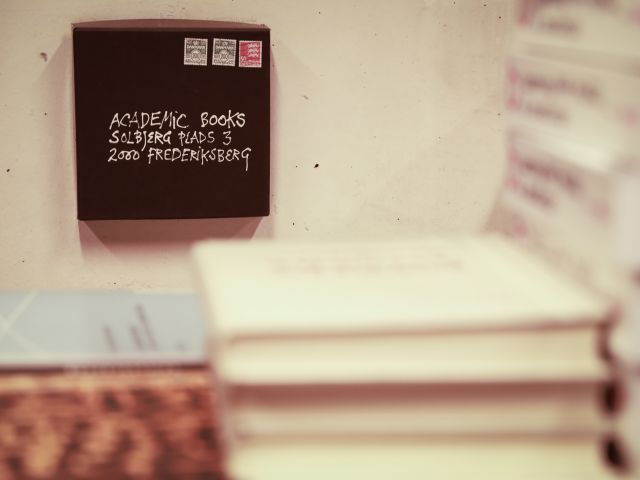
Jan Trzaskowski says he has noticed a gradual decline in sales over the last two to three years, but it took a while to realise what was happening.
A student came up to him to ask a question – showing the book on her laptop. There was just one problem, the book was never published as an e-book.
“I was baffled that she had a digital copy,” Jan Trzaskowski says.
Since, more students have confirmed that they have a digital copy.
“The interesting thing is that part of the course we are using it for is copyright law, so we’re actually teaching ideas of protecting intellectual property rights to benefit the production of intellectual property.”
“We don’t write books to get rich – there is so little money in books, even before and especially now.
Jan Trzaskowski says the book was written for the students – it was co-authored by him and three other CBS professors (two of them now at other universities) because there was no suitable book available for the course.
It was long in doubt whether the book would receive another edition, but now Jan Trzaskowski is working on it.
“This is the last attempt, otherwise it will not be updated again.”
Only students can save campus bookstores
While the example is from CBS, Kenneth Golubov says it is representative of the situation across Danish universities. Authors regularly phone the publishing department to ask why their book was published as an e-book even though they had asked not to.
“We have to tell them: “we didn’t”.
While Kenneth Golubov does not want to put pressure on the students – his message to CBS is clear: “There won’t be a campus bookstore if you don’t do anything.”
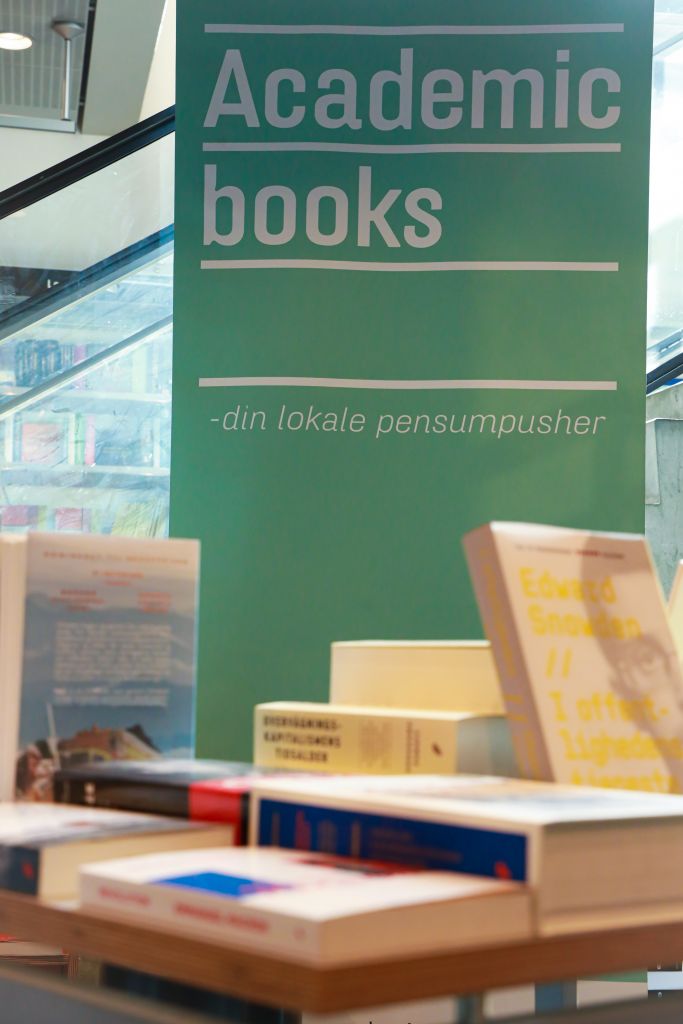
Academic Books uses the premises at CBS in exchange for providing some services such as printing services and direct knowledge of CBS curriculums and syllibi. Photo: Anna Holte.
“If we are going to have the stores open all year round in a couple of years, we have to do something, but all universities are financially pressed right now.”
Academic Books uses the premises on Solbjerg Plads rent-free, but Kenneth Golubov hopes universities would be willing to support in other ways – if they want to keep the bookstores.
You can get banned if you bring alcohol before five, but not if you spread illegal copying.
Kenneth Golubov, Administrative Director, SL Fonden
Without campus bookstores, he thinks the transition to university will be more difficult for students. If buying moves online, it may be difficult to get books in time for the semester start – as no physical copies are at hand, and it will particularly hit study programmes with a block structure or literature from small publishers.
He thinks CBS could inform students more about illegal copying – what they do is not enough. And, he would like to see it included in the behavioural rules.
“You can get banned if you bring alcohol before five, but not if you spread illegal copying. Put it in there. KU and SDU have done that, and DTU are considering it.”
Back in Solbjerg Plads, Ronni Jørgensen agrees that awareness raising among students is the key to turning the trend.
“We don’t want to throw anybody under the bus. It’s like if you have a bike shop and you yell at people without lights. ‘Come buy your lights in my store’ – it’s not a very good case to sell. But at the moment, it is threatening our life as a bookstore.”
He eyes the piles of books on the shop floor – among them are special publications by Samfundslitteratur which are only sold here. The store also sells CBS merchandise, the staff know the curriculums, syllabi, the courses and the literature and they provide teachers with printing services such as course compendiums.
A poster reads: “Academic Books – we are your new best friend”.
But will the students see the value of a bookstore on campus?
“Even though we’re not a part of CBS organisation-wise, we feel a part of the place because we’ve been here so long. That makes it even sadder to see that students are not supporting us as much as we hoped.”




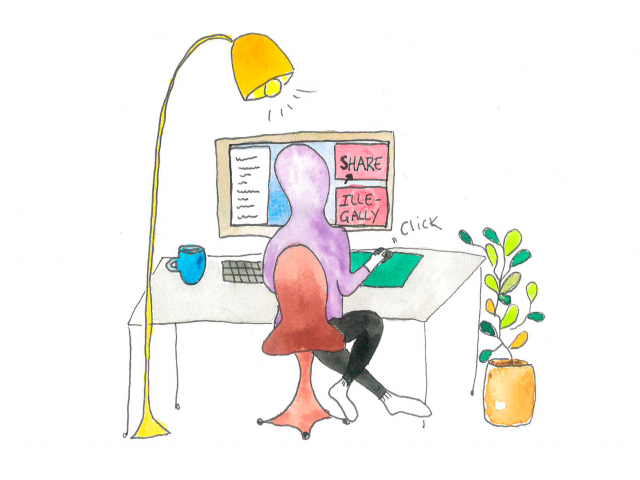
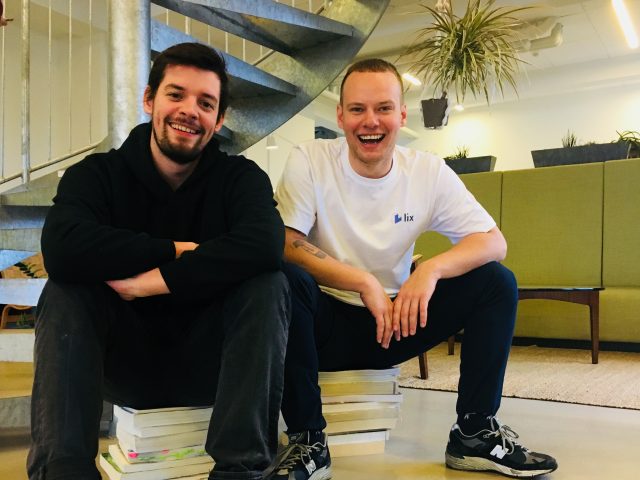
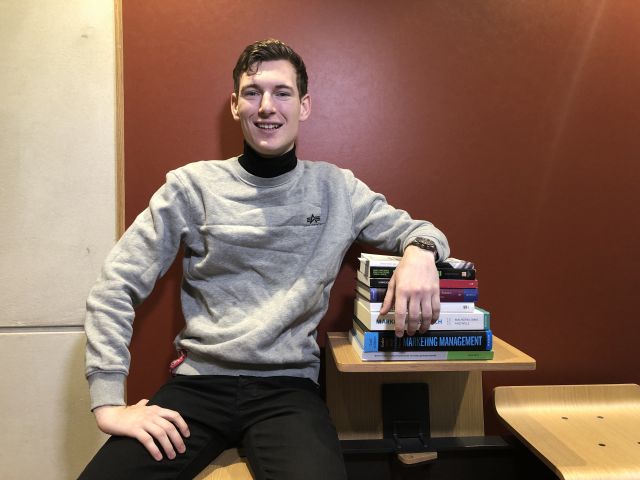
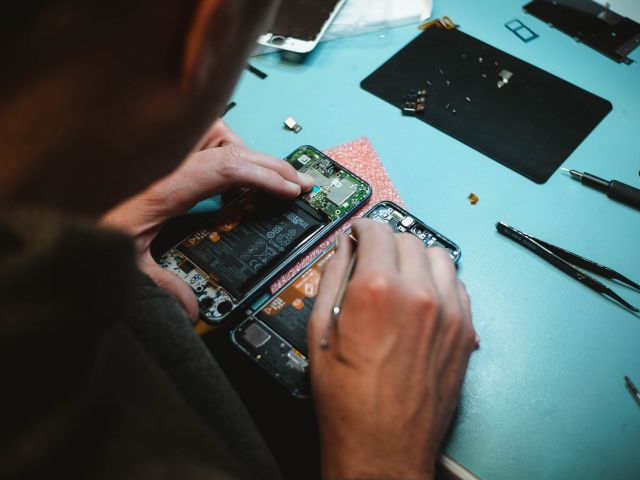





























































































































Comments